Almost four years following the last presidential election, the 2020 election took six days to determine the winner, with record-breaking turnout at the height of the COVID-19 crisis. This year’s election is just as historic: what was looking to have been just the seventh presidential election rematch in United States History has now turned into a race between just the second female Presidential nominee, Democratic nominee Vice President Kamala Harris and her running mate Governor Tim Walz, and Republican nominee former President Donald Trump and running mate Senator J.D. Vance. With this historic backdrop, many of Hackley’s seniors will have the opportunity to vote in their first presidential election on November 5th and will be able to have their voices heard at the polls.
There was high drama in the race this summer when the top of the Democratic ticket withdrew from the race. President Joe Biden had secured the Democratic nomination and was running for re-election, however due to a disastrous performance at the June 27th debate vs. Trump, and falling support from polling and his party, he dropped out of the race on July 21st and endorsed Harris.
Another somewhat unusual element was the presence of a strong third-party candidate. Independent candidate Robert F. Kennedy Jr. had started his campaign strong, looking to be one of the biggest election spoilers since Ross Perot in 1992, however, over time his polling numbers had started to dwindle leading to him officially dropping out on August 23rd, and endorsing Trump.
Despite this intrigue, many voters are more concerned about how the two candidates stand on the major issues of interest to them. Some of the key issues that concern students (some notable polls include ones by the Utah Daily Chronicle and the University of Nevada) across the nation are climate change, education, and foreign policy, among other national issues, such as abortion, border security, democracy, and healthcare.
Kamala Harris has focused much of her campaign around freedom and the fight for the future of America. Harris throughout her campaign has emphasized how she and running mate Tim Walz will support and attempt to codify the right to an abortion, the protection of our democracy by trying to protect the rights of many Americans, including Native Americans, and minority communities, including voter registration and voter ID regulation rollbacks.
Harris has also committed funds under the Biden Administration to student debt relief and committed more funds to colleges, particularly smaller or community colleges. These funds have relieved many graduates and college students’ accumulated debts and loans, and have pledged more loan relief if re-elected. These funds will also go to many smaller & community colleges to allow for more programs and class options for many students who attend such colleges.
Harris and the Biden Administration have committed to doubling down on combating climate change with the administration passing laws to limit climate change, rejoining the Paris Agreement, and passing an electric vehicle (EV) support bill with over 10,000 chargers being added across the country, and tax support for those considering purchasing an EV.
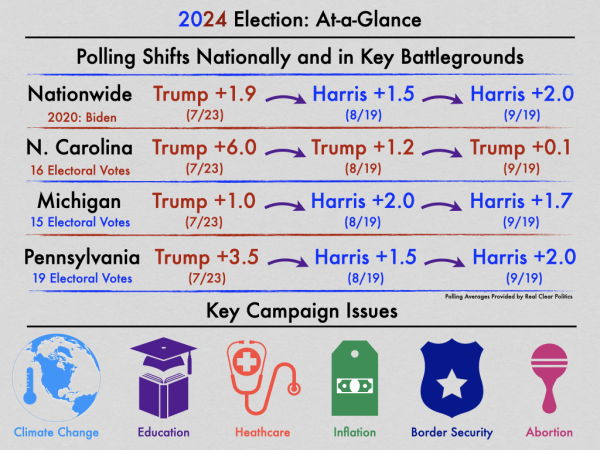
Donald Trump has focused his campaign around the “fight to regain America and its future”. His goals and key vocal points have been around tightening security along the U.S.-Mexico Border, changes around trade/tariffs and the U.S. economy, and many other stances that align with the controversial conservative “playbook” for the future of America Project 2025. While Trump has claimed that he “has nothing to do with Project 2025,” news outlets have found evidence that he is very closely connected with the authors and the organization itself.
In Project 2025, the Heritage Foundation, a conservative think tank, outlines many policy goals including plans to close/defund the Department of Education and hand control over to local governments and state governments. A rollback of programs in the department or the closing of it altogether could lead to a change of policies and changes in programs a college offers depending on the rules and laws passed by smaller governments in counties and states.
When Trump assumed office in 2017, he withdrew from the 2015 Paris Climate Agreement, a major landmark deal with nations across the Earth to reduce emissions and counteract the effects of climate change, with a goal of limiting the emissions in this century to 34.7℉ (1.5℃). He has vowed to withdraw again if he is elected president in November, which could lead to the advancement of global warming effects in the United States.
It is also of note that on the majority of ballots this November are Libertarian Party nominee Chase Oliver, who pooled almost 2.0% of the vote in Georgia’s 2022 Senate Race, and 2012 & 2016 candidate for the Green Party Jill Stein.
The election has remained close throughout the entire campaign, however, since President Biden dropped out Kamala Harris and Democrats down-ballot have since seen their polling numbers grow. For example, in the battleground of Pennsylvania, which many reports and pundits have labeled as the most crucial of the campaign, Trump had a 4.5% polling lead on July 20th, the day before Biden dropped out, now Harris has shrunk his lead to a tie.
In other battleground states such as Michigan and Wisconsin, Trump polling leads of 2.1% and 3.3% have now been flipped to leads for Harris of 1.2% and 1.5% respectively. In states that were considered as ones that Trump would likely flip, as in Georgia, and hold, as in North Carolina, have seen large leads for Trump reduce to 0.1% in both states during the campaign, putting both in play for Harris.
As we approach the election, Upper School history, government, and debate teacher Stephen Fitzpatrick expressed how students should make sure they are informed by making sure the information they are reading is accurate and to ensure they aren’t believing everything they see not only on social media but on news outlets. He suggested that students should read multiple different news outlets’ perspectives on an event like the election.
No matter who wins in November, nearly half the country will be upset or in some cases ‘heartbroken’ with the results, but Mr. Fitzpatrick emphasized that “We have to be a country that has to accept the results of elections. Not accepting attacks the principles of our republic and the democracy we are.”
** Polling numbers from September 19th, 2024. [Real Clear Politics] **

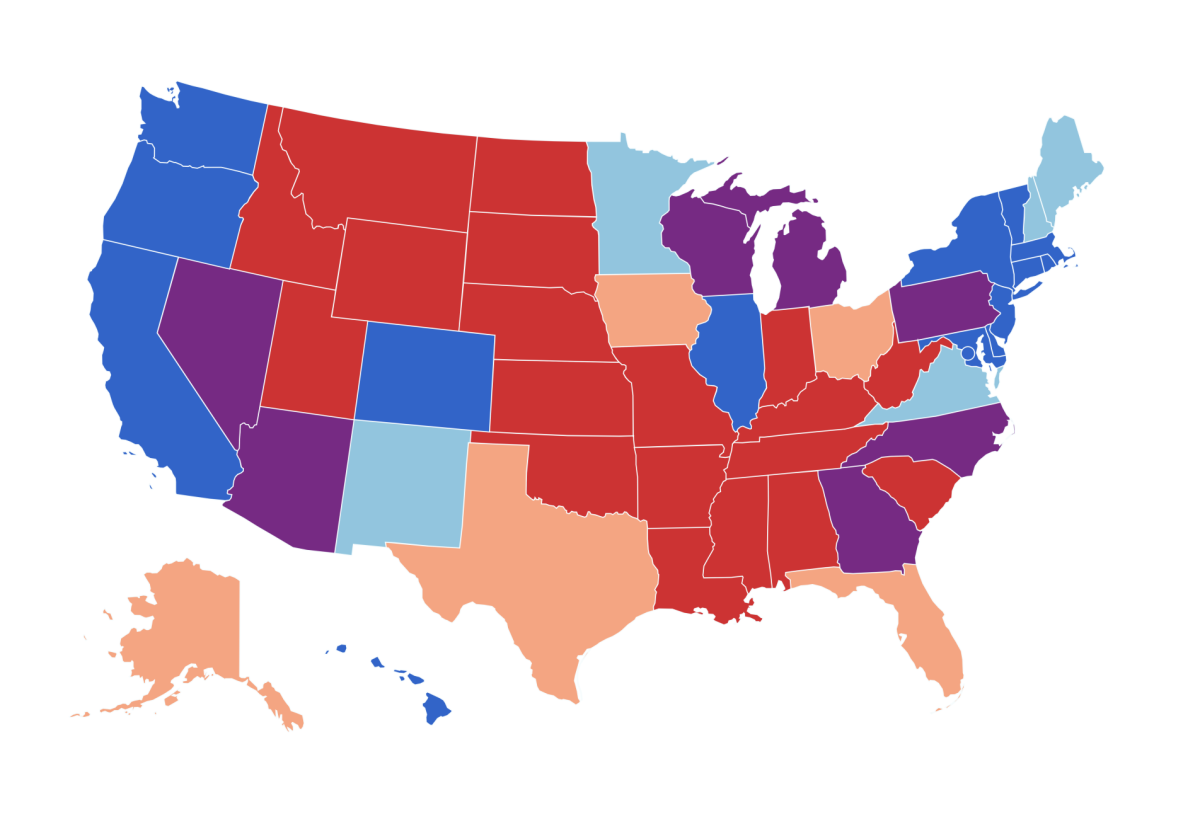
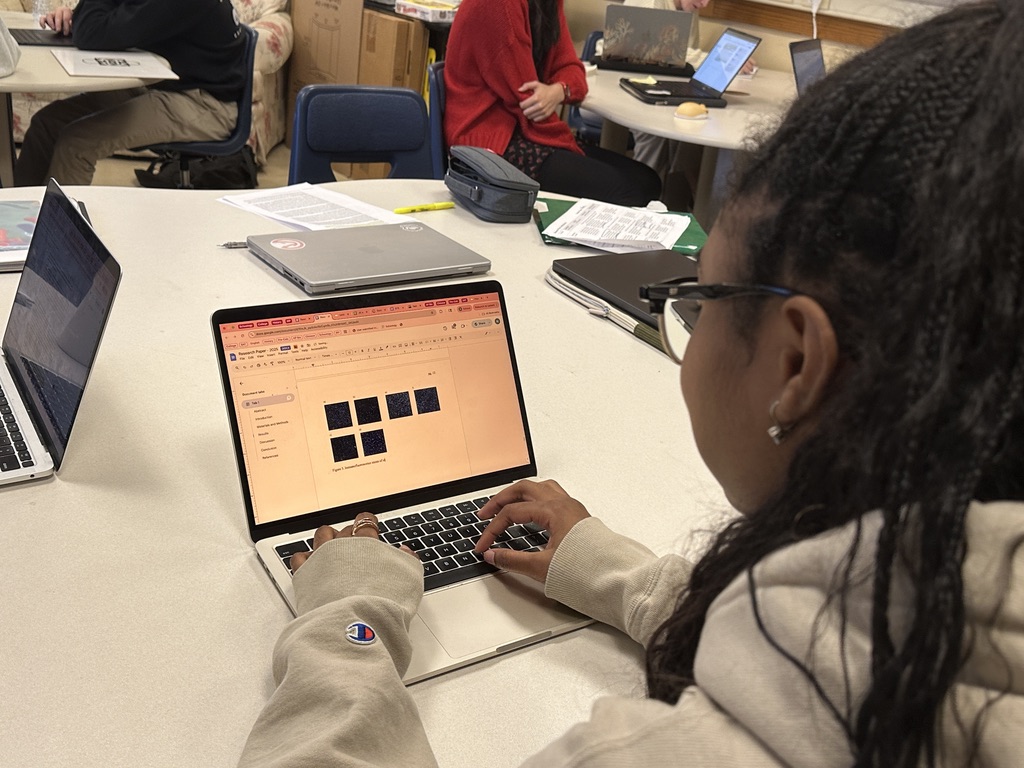
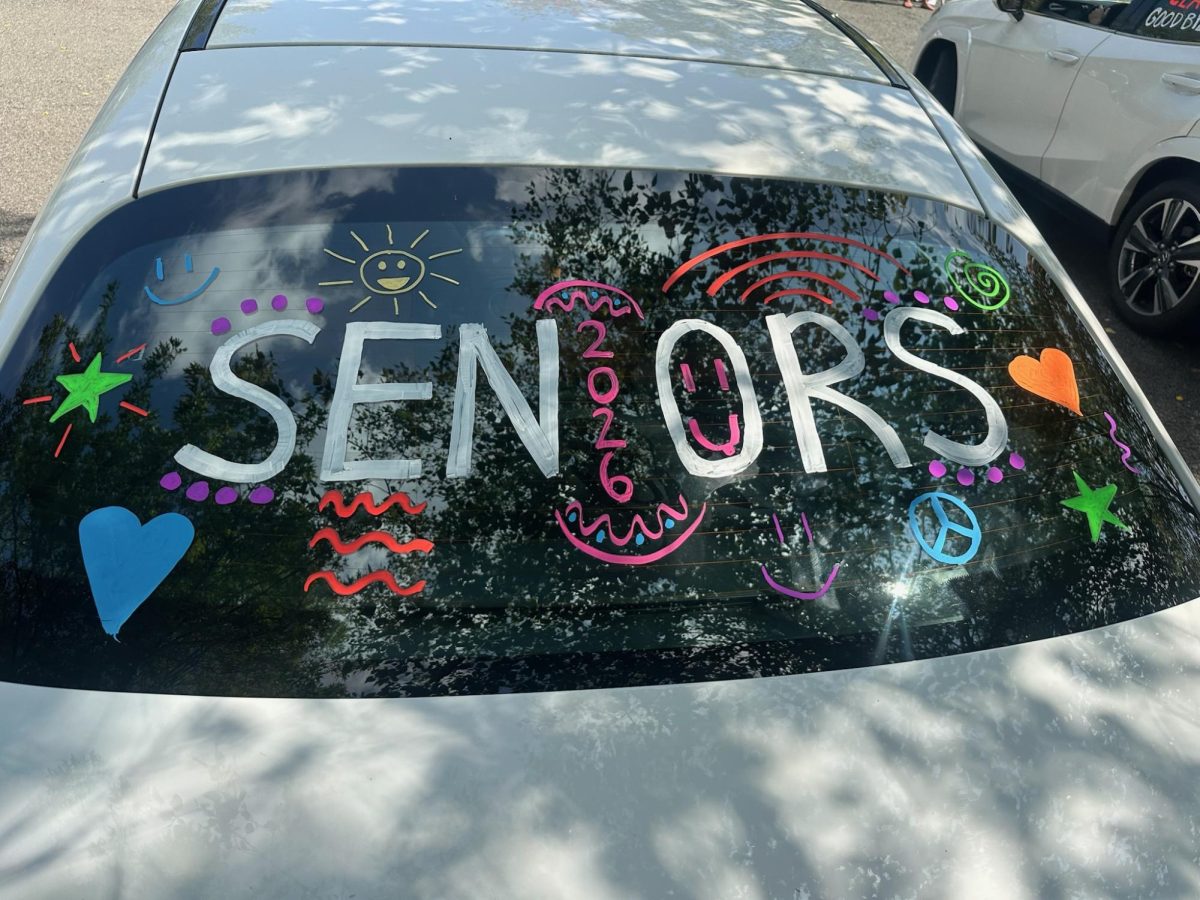
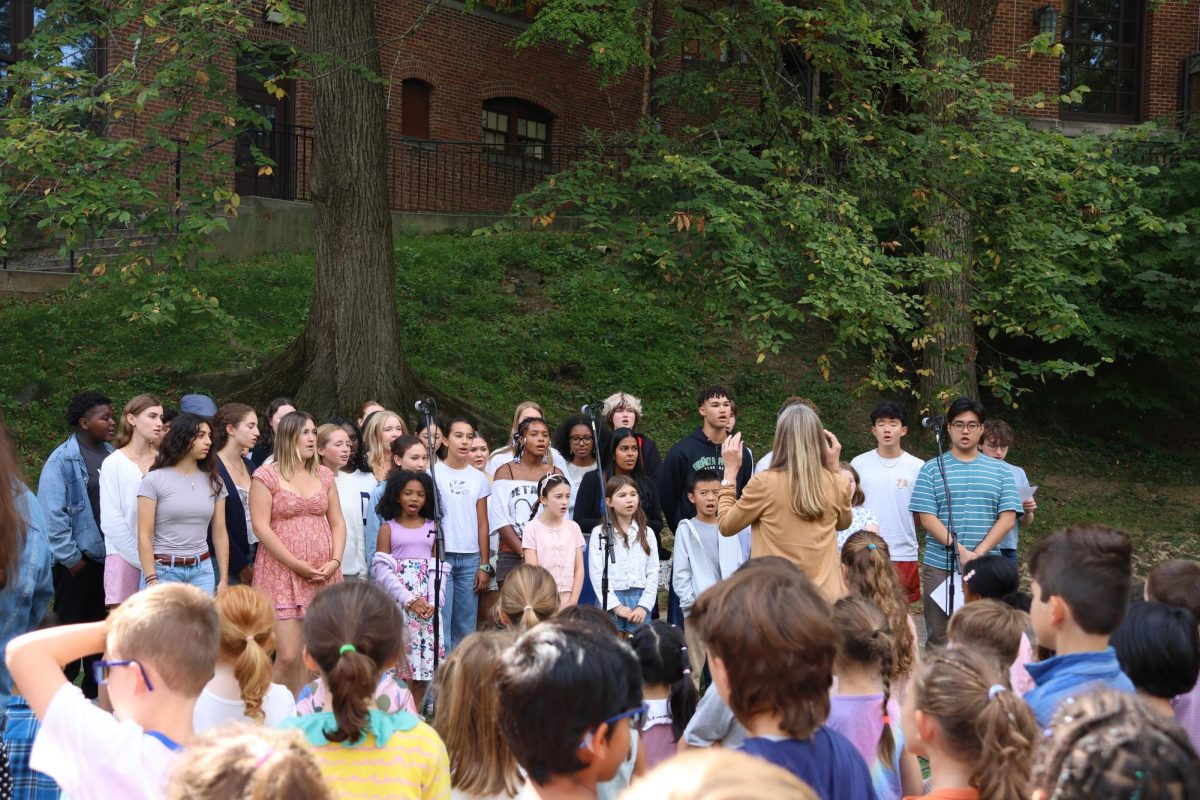
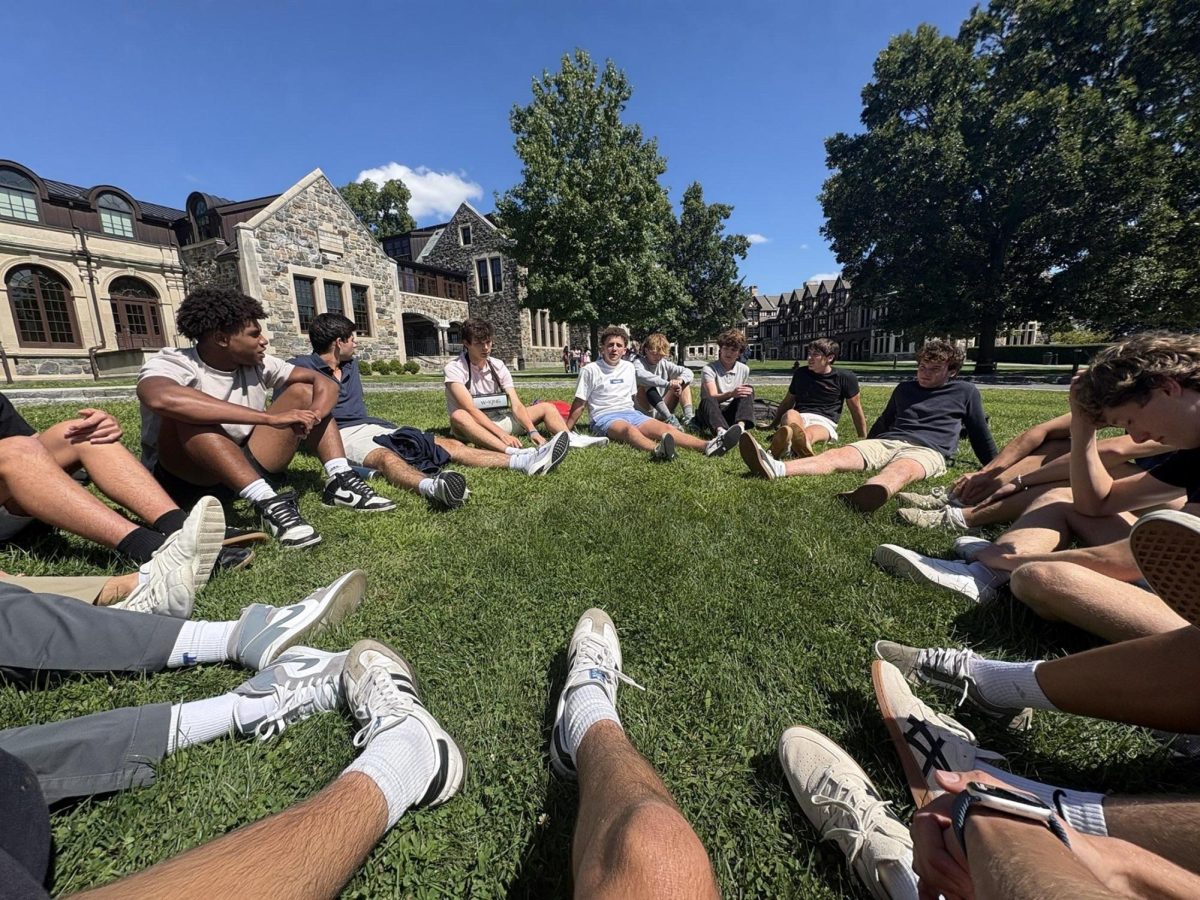
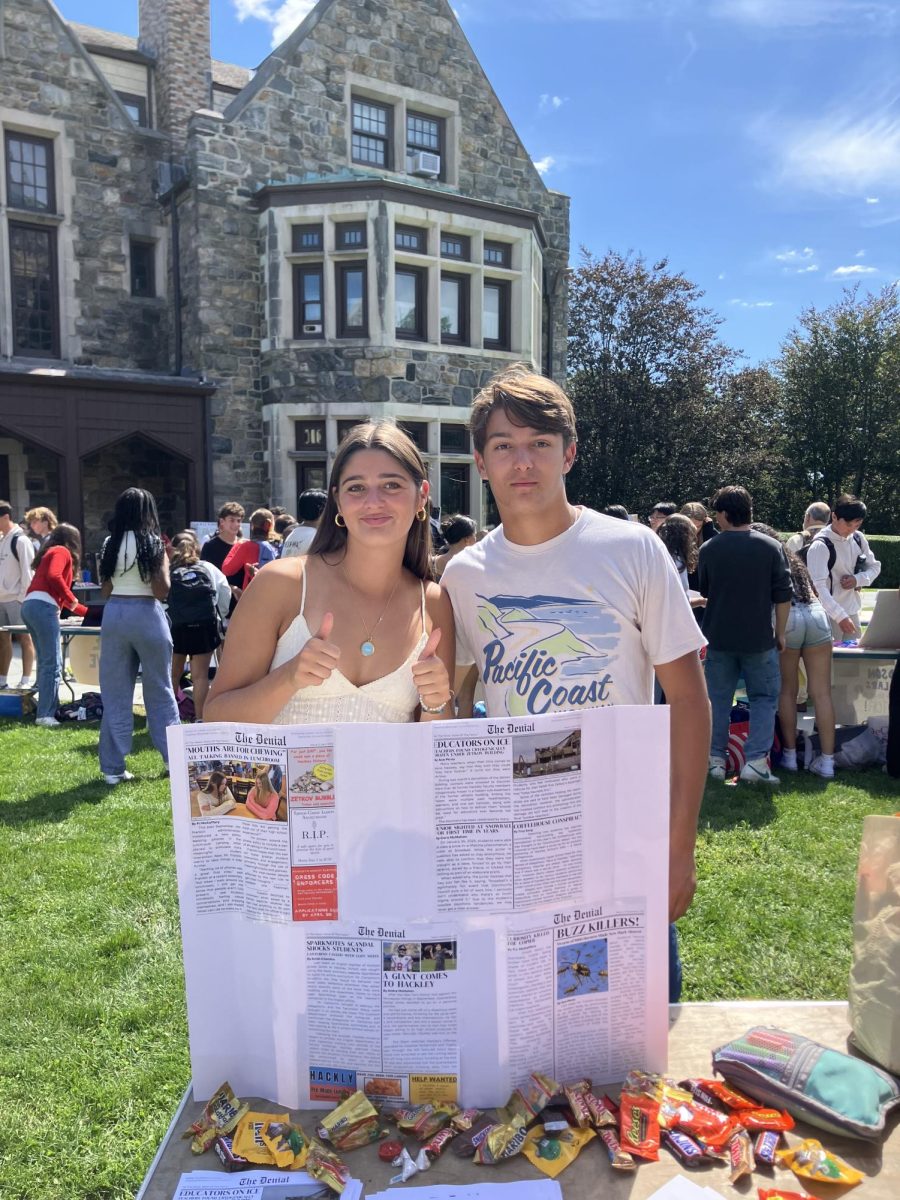
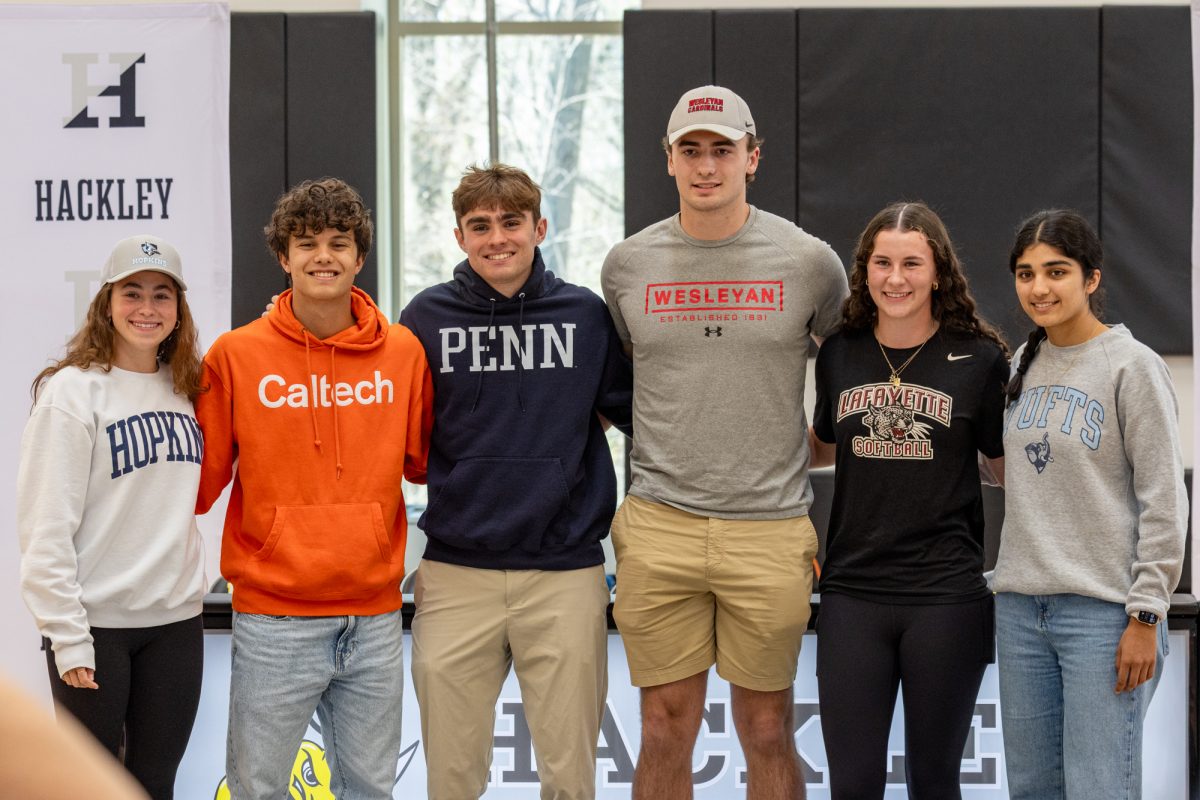
Ryan Gold • Sep 23, 2024 at 7:44 pm
Very informative article. The writer did a great job